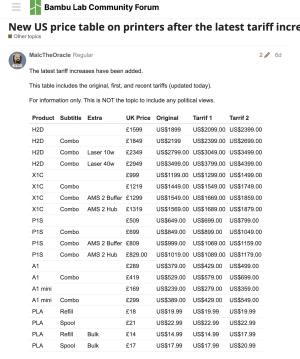I bought some steel yesterday at a local place. They said the prices have gone up. I asked "So Canada makes the steel and the US puts import tariffs on it and the price goes up in Canada...really? Yep
We may make a lot of steel and aluminum, but we don't always do the end working or refinement, a plant here may make the billet and turn it into sheet rolls, but then those rolls may go down south to be formed into hss or round tube.
Aluminum is the same story, the raw billets may be made here, but the plant that makes that specific alloy sheet or extrusion may be located on the other side of the border
Many of these companies are multinational, and this model makes/ made sense with open borders, plants are expensive, shipping is cheap

